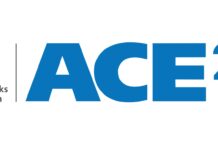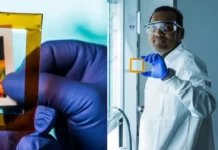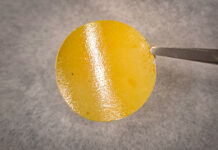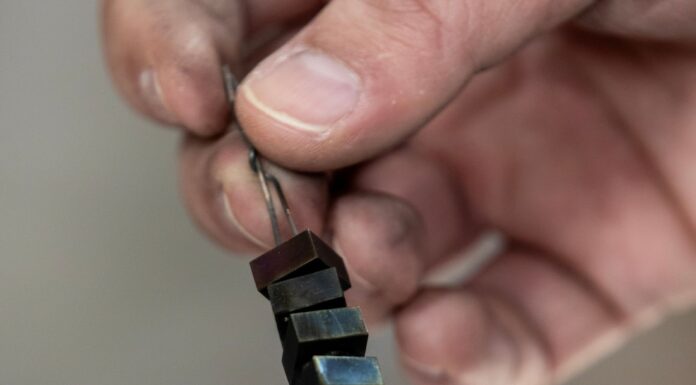
Battenfeld-Cincinnati to bring innovative water management solutions to K 2022 – Extruders to Solve Plastic Sustainability Problems
The company will be presenting a number of new products in that area, from drip irrigation to water management systems.
“For us, climate protection is directly connected to water management, and agriculture is a heavy user of water because of the irrigation systems used. Many of these systems are dependent on lagoons, causing problems such as clogging and hard-to-detect dripper and water outlet positions,” he explained.
In the circular economy space, battenfeld-cincinnati will be showing a high-speed extruders for waste-to oil applications. The granulate is melted by the extruder and degassed via vacuum zones. In this way, volatile foreign substances are extracted and pumped off separately. Battenfeld-cincinnati specially developed a new processing unit and screw geometry for this application.
As well, the company’s recycling solutions will be on display. Its STARextruders, used for producing PET sheets from new or recycled materials has long been a best-seller in this area. In response for the rising demand for recycled material, these will be joined by 2 new machines for this application for the processing, among others, of recycled PVC window frames: the conventionally designed twin-screw AglomEX and the AglomEX EMS, a counter-rotating twin screw extruder with electrically driven shear-gap adjustment (EMS). Through longitudinal movement of the barrel by an electric motor, the shear gap can be steplessly adjusted.
In addition, battenfeld-cincinnati is rolling out a new, uniform design across all its extruder models, which, said Schley, will be unveiled at K.
“The company offers equipment for the manufacture of virtually all types of semi-finished extruded products, from pipes, tubes, profiles, plates, to films and sheets. Because they are all manufactured at a single source, they are perfectly geared technically to work together without any interface problem and integrated into the intuitive Bctouch UX control system,” he explained. The new design offers greater functionality, with better accessibility and ease of use, including easy cleaning features, and a significantly lower energy consumption through the further optimisation of each separate component. “Now, with the new design, they will also be visually immediately identifiable as part of the BC family.”

Erema introducing 7 new recycling systems at K fair
Extruders to Solve Plastic Sustainability Problems: At this year’s K fair, Erema, Pure Loop, Umac, 3s, Keycycle and Plasmac – the companies that together make up the Erema Group – will for the first time be presenting their technological innovations, services and support together at a Group trade fair stand (Hall 9/C09); “In total 11 new technologies will be shown,” said CEO Manfred Hackl, speaking at a pre-K press event in June. Seven are recycling related; four are others, he added.
Extrusion-wise, the Group is debuting its first solution developed specifically for mechanical material processing as part of the chemical recycling process, a new series called called Chemerema. “This indicates our clear commitment to chemical recycling activities,” said Hackl. “Our part is the input preparation.”
Mechanical processes are often at the beginning of the process chain for chemical recycling and serve to prepare the input streams as a way to ensure a reliable, continuous and energy-efficient flow of feed material. Chemerema offers extrusion-based technology that can be adapted to the specific requirements of chemical recycling.

Reifenhäuser Group: ‘It’s time to turn challenges into chances’
At K 2022, the Reifenhäuser Group is spreading its presence across four booths: three of its own and one as part of a joint pavilion in the so-called Circular Economy Forum as a founding partner of the R-Cycle initiative. R-Cycle is a cross-company initiative to develop an open and globally applicable tracing standard for sustainable plastic packaging. All recycling-relevant data is automatically recorded during the production of the plastic packaging – creating a digital product passport – and made accessible via appropriate markings such as digital watermarks or QR codes on intermediate and end products. This enables waste sorting plants to accurately identify packaging and to sort this into recyclable fractions. R-Cycle is now operational and has been successfully tested in a number of pilot projects.
Among many others, one interesting development which the company will also be showcasing is a particularly efficient production process developed by Reifenhäuser Cast Sheet Coating (Hall 17/C22), which allows PET recyclate to be processed directly into food-safe film without a pre-drying process. Processors thus save the investment in an additional line component and avoid additional energy and maintenance costs, which leads to significant savings, especially in times of rising energy prices.
The process, which uses a co-rotating twin-screw extruder and a specially developed high-performance vacuum system, meets the criteria of both the US Food and Drug Administration (FDA) and the European Food Safety Authority (EFSA), opening the door for direct tray-to-tray recycling. The specially developed ExtrusionOS Production Compliance software bundle helps to monitor and securely document production processes and compliance with EFSA-relevant thresholds in a data-based and real-time manner. Via ExtrusionOS, production data can also be transferred to a Digital Product Passport – for example, via the open R-Cycle standard.
ExtrusionOS Production Compliance is based on Reifenhäuser’s ExtrusionOS Core & c.Hub Middleware, and can also be retrofitted to existing lines. The c.Hub, the new digital ecosystem of the Reifenhäuser Group, is an on-premise solution that can be deployed locally and remains under the full data sovereignty of the user and ensures the secure exchange of data between different IT systems, applications, extrusion machines and line controls. This includes systems developed by both Reifenhäuser and by third-party vendors. The web-based ExtrusionOS user interface, provides user-friendly applications and dashboards that help monitor, manage, store and analyze this data. All users can access all data from wherever they are.
One challenging aspect of the increasing use of recyclate is the wear and tear on screws and barrels. Reifenhäuser Reiloy will be showcasing its highly wear-resistant screws and barrels made with proprietary, iron- and nickel-based alloys and featuring process-optimized surfaces for an extended service life. The decisive factor here is the composition of the alloys, because wear protection depends not only on the hardness of the layer, the company said.
At the various Reifenhäuser stands, there will also be exhibits demonstrating, among others, how blown film producers can achieve a more stable production when processing recyclate and the new, high-performance cooling system for its EVO FFS blown film line – all designed to meet the challenges facing producers today. As Bernd Reifenhäuser said: “It’s time to turn challenges into chances.”

Addex’ ‘Short Stack’ technology a ‘major upgrade’
US-based Addex is introducing the ‘Short Stack’ at the upcoming K 2022 exhibition (Hall 17/C41), described by the company as a major upgrade to the company Intensive Cooling system which was first introduced at K 2016. I It typically delivers a 25 percent increase in output over the company’s ‘Down-on-the-Die’ version, which offers an improved output by 10-15% over conventional dual-flow air rings.
Addex has added additional high-velocity air streams to the traditional single, high-velocity ‘main lip’ air stream common to all air rings. Each new high-velocity air stream naturally provides a firm stabilisation ‘lock point’ that provides intense cooling and holds the bubble in place. Another new design element is sealing the air ring to the top surface of the die, allowing positive stabilisation and high-intensity cooling to begin earlier in the process, i.e. just above the die lip.
In the new Short Stack configuration, the bubble is pulled through a circular enclosure located between the die and air ring that pulls the bubble into an oversized air ring which further increases output. Unlike other raised-up systems, the Short Stack does this naturally, so it can be run with or without conventional IBC hardware.
The Short Stack incorporates an additional Intensive Cooling element that adds two more high-velocity air flows to the original Down-on-the-Die version released in 2017 (which had one additional lock point), for a total of three locking points, guaranteeing substantially higher output rates due to the increased stability, which in turn allows for processing much lower melt strength materials than before. Fewer adjustments are needed, if any, even with material changes.
Extruders to Solve Plastic Sustainability Problems: Original Article
Ford and MacDonald’s collaborate to convert coffee bean skin into car parts










